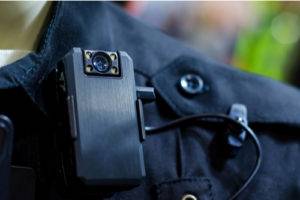Legally Reviewed By:
Brian P. Gabriel, Esquire
 In response to ongoing concerns about police conduct, the Department of Homeland Security (DHS) announced in May 2023 a department-wide policy mandating the use of body-worn cameras (BWCs) for its law enforcement officers. This initiative aligns with President Biden’s Executive Order on Advancing Effective, Accountable Policing and Criminal Justice Practices to Enhance Public Trust and Public Safety. Additionally, the Department of Justice (DOJ) has implemented policies requiring federal law enforcement agencies to equip officers with BWCs during specific operations, such as pre-planned arrests and the execution of search warrants. These measures aim to enhance transparency and accountability within federal law enforcement agencies.
In response to ongoing concerns about police conduct, the Department of Homeland Security (DHS) announced in May 2023 a department-wide policy mandating the use of body-worn cameras (BWCs) for its law enforcement officers. This initiative aligns with President Biden’s Executive Order on Advancing Effective, Accountable Policing and Criminal Justice Practices to Enhance Public Trust and Public Safety. Additionally, the Department of Justice (DOJ) has implemented policies requiring federal law enforcement agencies to equip officers with BWCs during specific operations, such as pre-planned arrests and the execution of search warrants. These measures aim to enhance transparency and accountability within federal law enforcement agencies.
There is widespread belief that the footage body cameras capture will force officers to use restraint and reserve force for situations that endanger them; however, research into the use of body cameras has produced mixed results. There is no significant evidence that this equipment will reduce instances of police brutality or provide reliable evidence.
When Did Police Officers Start Wearing Body Cameras?
After the death of Michael Brown in 2014, the Obama administration funneled millions of dollars in federal funds to help police departments adopt body cameras. By 2023, approximately 82% of U.S. law enforcement agencies had deployed body-worn cameras, a significant increase from 47% in 2016. One study reveals that the main reasons local police and sheriff’s departments had acquired body-worn cameras were to:
- Improve officer safety
- Increase evidence quality
- Reduce civilian complaints
- Reduce agency liability
Officers wear cameras on their chests. They usually turn them on and off throughout the day when interacting with regular people. The technology has been lauded as equipment that could strengthen police transparency and hold officers accountable. Yet, even as the use of body cameras increases, the footage captured by these devices rarely sees the light of day.
Studies Unclear as to Whether Body Cams Reduce Use of Force
In Washington, DC, researchers conducted an experiment from 2015-16 in which half of the officers with the Metropolitan Police Department used a body camera for seven months, while the other half went without one. According to David Yokum, the lead scientist on the randomized study,
“The top-line results that we found were that there weren’t any meaningful, detectable effects on the likelihood of force used or the rates of complaints that we were seeing.”
Regarding specific metrics like people filing complaints against officers, the unit found “no detectable effect.” According to Yokum, if police officers are going to use body cameras, the devices should represent just one part of a comprehensive push towards safety and transparency.
Use of Body-Worn Cameras in Hallandale Beach
An assistant professor of public affairs with The Ohio State University who studies the relationships between police and the communities they serve found no results of statistical significance when looking at the use of body cameras in Hallandale Beach. There were non-statistically significant trends in the data, like the fact that officers wearing cameras issued more citations than those who didn’t wear cameras.
Other researchers found that, in the majority of their studies, the use of body cameras reduced the number of complaints against officers. This suggests that the presence of these devices may thwart baseless claims against individual officers.
Can the Officer’s Use of a Body-Worn Camera Help My Criminal Case?
When police use body-worn cameras correctly, the footage they capture may be invaluable to your case. These cameras record audio and visual footage of interactions between police officers and members of the public. They can prove officers wrong if they try to make up situations or lie in their police reports. They can also help in situations where police lose evidence. In these cases, defense attorneys can point out the faulty use of these cameras to demonstrate incompetence on behalf of the police officers who arrested you and cast doubt on their testimony.
Receive Quality Criminal Defense in West Palm Beach
Attorney Brian P. Gabriel has helped countless people facing criminal penalties in Palm Beach County for more than 30 years. He is a determined criminal lawyer who aggressively defends the rights of individuals in the criminal justice system. Contact Brian Gabriel for quality representation if you have been arrested in the West Palm Beach area. Call 561-622-5575 or complete a contact form for a free consultation.



